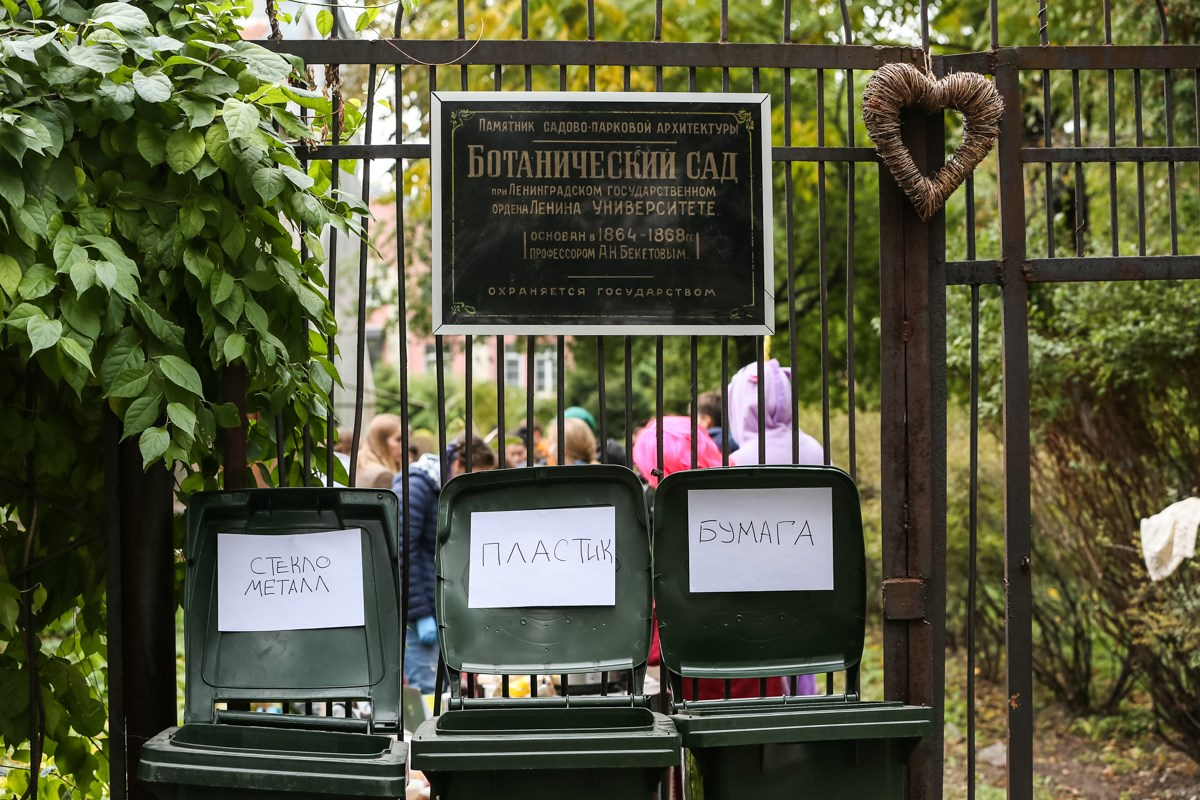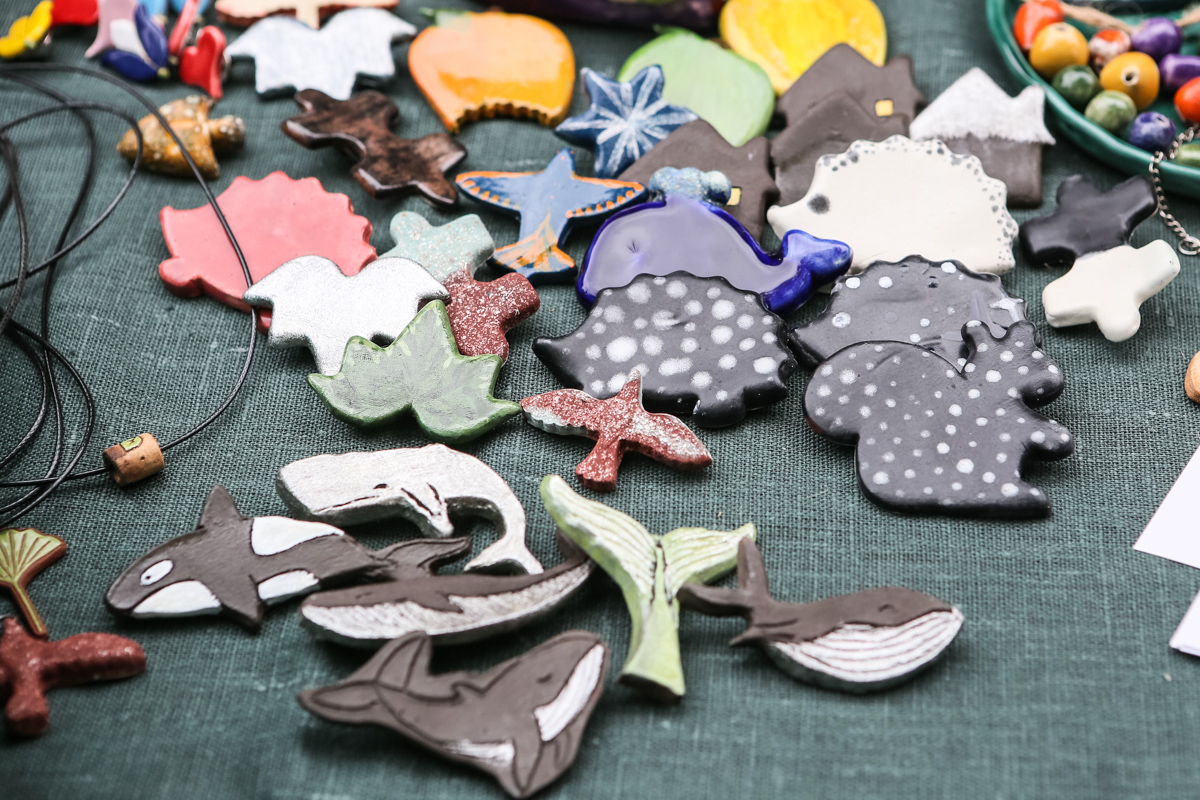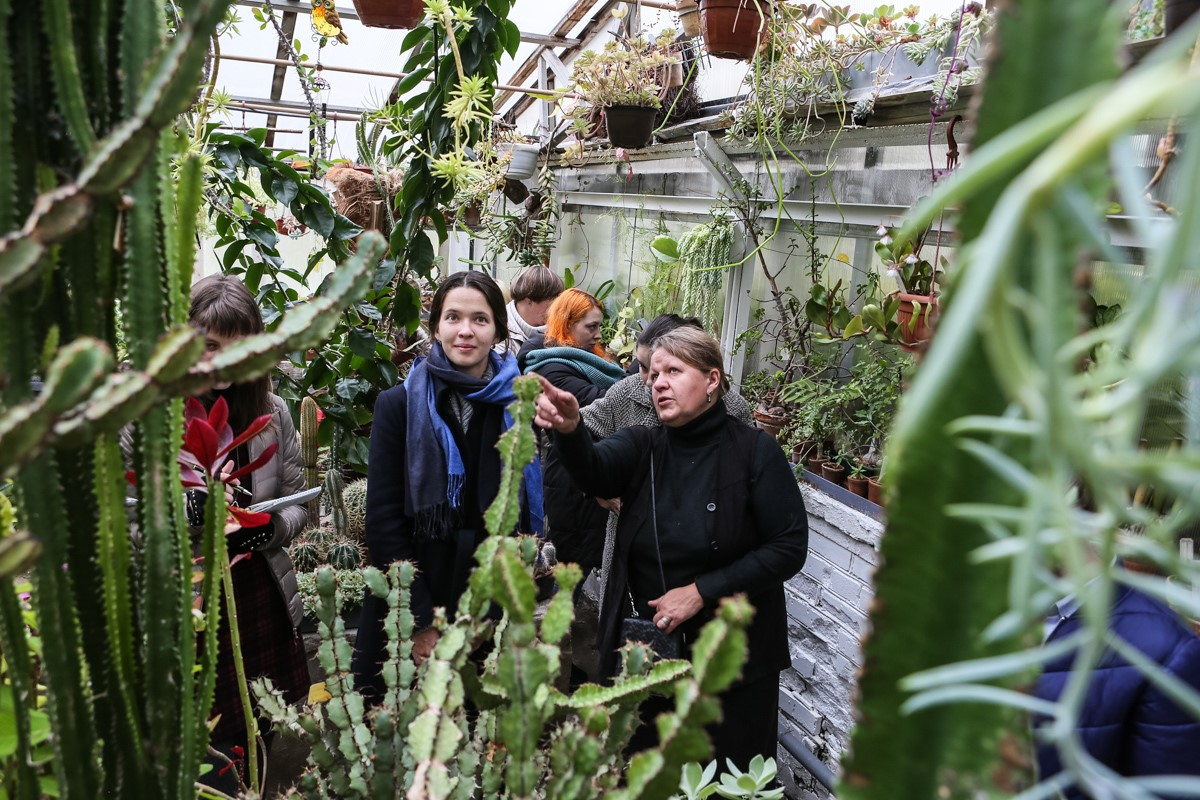The lost garden: visitors to biology fair discover the St Petersburg University Botanical Garden
Twice a year, biology fairs are held at the University. They offer an opportunity for students and visitors not only to acquire unusual handicrafts and to help the St Petersburg University Botanical Garden (the proceeds go toward its development) but also to become acquainted with one of the most magnificent plant collections in the country.
Early in the morning, visitors to the fair were given a tour of the tropical and succulent conservatories, where they were shown American cactuses and African euphorbia, aloe, haworthia, lithops, which look like river gravel, and tropical plants from the sunflower family – the closest relatives of the common dandelion found in cities. There is yet another interesting plant in the University collection – a Selenicereus grandiflorus, better known as the Queen of the Night. Last winter, it was transplanted to the succulent conservatory, where it has taken hold, but this cactus usually blossoms only in the second year after transplanting. Members of the University staff told the visitors to the conservatory how succulents live through the extreme conditions of a drought and gave advice about how to care for these plants at home.
St Petersburg University biology students gave a tour around the grounds of the Botanical Garden that was open to all comers and told their guests about the trees and shrubs they could find there. So that they could take in the entire garden and discover its most beautiful nooks and crannies, they were invited to participate in a quest. By answering questions, they could learn, among other things, who was depicted on the sundial in the middle of the flower garden and the name of the tree whose leaves turned red before any others.
Over the course of two days, fairgoers had a chance to visit the St Petersburg University herbarium, one of the largest of its kind in Russia. It contains around 1.4 million specimens, of which 250,000 are available for use. This abundant collection is used in the educational process: special teaching herbaria, on display during lectures, are much more engaging than presentations. During practical classes, students not just can, but must touch the plants and make cross sections, so that they can study their structure. Not only vascular plants, but any plants whatsoever, even seaweed, mushrooms or lichen, can be preserved in such a form. Herbaria that have been properly collected can be kept for an indefinitely long time. To prove this, the guests were shown a herbarium that had been collected in 1793. There is no date on the oldest herbarium sheet in the St Petersburg University collection, but it is known to date back to at least 1624.
For many centuries, herbaria have been collected for academic purposes and simply to preserve the aesthetics of a fresh flower, but Valentina Bubyreva, a staff member at the St Petersburg University Herbarium, is convinced that it is impossible to predict ahead of time how a collection may be used many years after it has been put together. ‘Today, we can take a piece of a herbarium specimen, isolate the DNA and carry out a genetic study, although fifty years ago, nobody could have imagined doing this. It turns out that herbaria are in fact biobanks,’ as Ms Bubyreva put it. ‘At any herbarium in the world, you can make an arrangement with the curator to take 50 mg of whatever specimen. Royal Botanic Gardens, Kew, in England, is an exception: there you have to submit a written request, and then they will give you a vial with the isolated DNA.’
All day long, an event was being held to promote the separate collection of waste. At the entrance to the Botanical Garden, containers had been set out for different fractions: glass, metal, plastic and paper. Ianina Dmitrakova, a staff member of the University’s Environmental Office gave a talk to fairgoers and explained why it was necessary and important to sort waste.
Every year, Russia generates more than 65 million tonnes of trash, or solid waste, 94 percent of which is sent to landfills. There are currently 14,000 large waste disposal sites that are legally registered and occupy more than 4 million hectares, which is four times the size of Cyprus. On top of that, there are also unsanctioned disposal sites; in 2016, there were 60,000 of them, and with each passing year the number doubles. While in Europe, for reasons of space, recycling is an urgent issue, in Russia it is not so palpable. Around 2 percent of the waste gets incinerated, which decreases the amount by a factor of 10, but it becomes more toxic, and only 4-8 percent of it is recycled.
Some people believe that in Russia recycling is a myth and the waste that people collect and sort does not get sent anywhere. We actually have more than 2,500 conversion sites, and every last one of them is being underutilised. We have the capability of recycling – we simply do not make use of it.
Ianina Dmitrakova, a staff member of the St Petersburg University Environmental Office
Ms Dmitrakova told her audience about the University’s participation in a waste sorting programme. ‘If each of us throws out about half a tonne of trash a year, then you can imagine the amount of waste that the University produces from its 23 halls of residence and more than 45 academic buildings and how much it pays to dispose of it. This is why the Environmental Office at St Petersburg University and the administration have a vested interest in separate collection,’ Ms Dmitrakova pointed out. ‘This is how we reduce the negative impact we have on the environment and, at the same time, comply with the law, according to which it is inappropriate to transport recyclable waste to landfills. We also save money and show how responsible we are.’
This year, the cost of removing one cubic metre of mixed municipal solid waste has gone up to 934 roubles. For this reason, the staff of the Environmental Office at the University are trying to collect the waste that comes from different fractions separately and to have it taken away for reprocessing. Even if the collection of raw materials does not pay for itself, the University still saves money every time it refrains from sending around six cubic metres of waste (the amount contained in one truckful for one run) to a landfill. St Petersburg University now collects wastepaper, scrap metal, plastic of the first type and cleaning waste in separate containers – and likewise hazardous wastes, such as mercury lamps, batteries, cartridges, accumulator cells and chemical agents. The number of different fractions is constantly increasing, since new businesses looking to buy raw materials are starting up in the city and students are becoming involved in a lifestyle that is environmentally friendly.
On the day after the biofair, the traditional autumn subbotnik (a day of voluntary clean-up) was held at the Botanical Garden, and students helped prepare the grounds for the oncoming winter.




